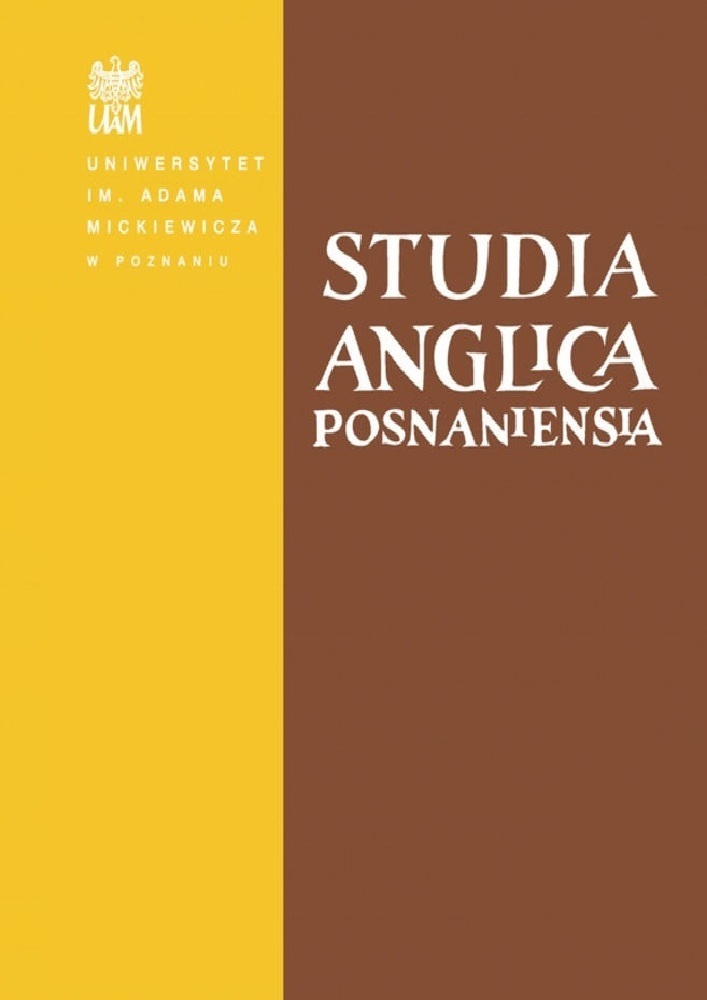Abstract
Phrases deriving from literary quotations are sometimes included in language histories as contributions from famous writers, like Shakespeare. This paper will argue that the label “change from above” is still a useful label for the addition of literary phrases to the language, even if such an addition is not typical of the variationist changes for which the label was coined. This paper will also demonstrate that the process of incorporating a literary quotation into the language involves several alterations to the quotation’s form and meaning, and that these changes are also part of the “change from above” characterizing the adoption of literary phrases.
References
Baum, L. Frank 2008 [1900]. The Wonderful Wizard of Oz. Project Gutenberg. http://www.gutenberg.org/files/55/55-h/55-h.htm. (accessed on 18 February 2019)
Bent, S. A. 1887. Familiar short sayings of great men (6th edn). Boston, MA: Ticknor & Co.
Bénéjam, Valérie. 2005. Passports, ports, and portraits: Joyce’s harbouring of Irish identity. Genetic Joyce Studies 5.2. https://www.geneticjoycestudies.org/GJS5/GJS5Benejam.htm. (accessed on 7 April 2018).
Boorstin, Daniel J. n.d. The Americans: The democratic experience. https://homepage.eircom.net/~odyssey/Quotes/History/Boorstin_Americans_3.html. (accessed on 9 April 2018)
Bragg, Melvyn. 2003. The adventure of English: The biography of a language. New York, NY: Arcade.
Brinton, Laurel & Elizabeth Closs Traugott. 2005. Lexicalization and grammaticalization in language change. Cambridge: Cambridge University Press. DOI: 10.1017/CBO9780511615962
Cambridge Advanced Learner’s Dictionary and Thesaurus. 2016. https://dictionary.cambridge.org/us/dictionary/english/. (accessed on 9 April 2016)
Cannon, Garland. 1992. Malay(sian) borrowings in English. American Speech 67(2). 134–162. DOI: 10.2307/455451
Crystal, David. 2004. The stories of English. Woodstock, NY: Overland Press.
D’Arcy, Alexandra & Sali A. Tagliamonte. 2010. Prestige, accommodation, and the legacy of relative who. Language in Society 39(3). 383–410. DOI: 10.1017/S0047404510000205
D’Arcy, Alexandra & Sali A. Tagliamonte. 2015. Not always variable: Probing the vernacular grammar. Language Variation and Change 27(3). 255–285. DOI: 10.1017/S0954394515000101
Davies, Mark (ed.). 2013. Corpus of Global Web-Based English: 1.9 billion words from speakers in 20 countries. https://corpus.byu.edu/glowbe/.
De Breadun, Deaglan. 2012. A sense of coming together as many turn out to greet ‘Banríon Eilís a Dó’” Irish Times (27 June 2012). https://www.irishtimes.com/news/a-sense-of-coming-together-as-many-turn-out-to-greet-banr%C3%ADon-eil%C3%ADs-ad%C3%B3-1.1069003. Accessed April 23, 2018.
De Cock, Sylvie, Sylviane Granger, Geoffey Leech & Tony McEnery. 1998. An automated approach to the phrasicon of EFL learners. In Sylviane Granger (ed.), Learner English on computer, 67–79. London: Longman.
Doi, Schun. 2014. The naturalisation process of the Japanese loanwords found in the Oxford English Dictionary. English Studies 95(6). 674–699. DOI: 10.1080/0013838X.2014.942100
Durkin, Philip. 2012. Variation in the lexicon: The ‘Cinderella’ of sociolinguistics?: Why does variation in word forms and word meanings present such challenges for empirical research? English Today 28(4). 3–9. DOI: 10.1017/S0266078412000375
Fillmore, Charles J. 1978. On the organization of semantic information in the lexicon. In Donka Farkas, Wesley M. Jacobsen & Karol W. Todrys (eds.), Papers from the Parasession on the Lexicon, Chicago Linguistic Society, April 14–15, 1978, 148–173. Chicago, IL: The Society.
Finnegan, Ruth. 2011. Why do we quote? The culture and history of quotation. Cambridge: Open Book Publishers. DOI: 10.11647/OBP.0012
Goldsmith, Oliver. 1761. The art of poetry on a new plan, illustrated with a great variety of examples (vol. 2). London: Newbery.
Grieve, Jack, Andrea Nini & Diansheng Guo. 2017. Analyzing lexical emergence in Modern American English online. English Language and Linguistics 21(1). 99–127. DOI: 10.1017/S1360674316000113
Hawkey, James. 2016. Developing discussion of language change into a three-dimensional model of linguistic phenomena. Language and Linguistics Compass 10(4). 176–190. DOI: 10.1111/lnc3.12180
Huise, John. 1633. Florilegium Phrasicon, Or a Survey of the Latine Tongue, According the Elegancy of its Proper Dialect Necessary for all Young Students in the same for their better Imitation, and Practice Thereof, Either by their Voice, or Pen. n.p.: A. M
Jajah, Mahmoud. 2012. Everyday motivational quotes. Thoughts of a Zongo Boy! https://mahmoudjajah.com/2012/03/27/everyday-motivational-quotes/. (accessed on 9 April 2018)
Joyce, James. 1961 [1922]. Ulysses. New York, NY: Vintage.
Knowles, Elizabeth. 2009. Borrowed words: Using the words of others to express what we want to say. In R. W. McConchie, Alpo Honkapohja & Jukka Tyrkkö (eds), Selected proceedings of the 2008 Symposium on New Approaches in English Historical Lexis (HEL-LEX 2), 14–22. Somerville, MA: Cascadilla Proceedings Project.
Knowles, Elizabeth. 2011. Chaos and old night: A case study in quotation usage. In Olga Timofeeva & Tanja Säily (eds.). Words in dictionaries and history: Essays in honour of R. W. McConchie, 91–108. Amsterdam: John Benjamins. DOI: 10.1075/tlrp.14.09kno
Labov, William. 1972. Sociolinguistic patterns. Philadelphia, PA: University of Pennsylvania Press.
Marmur, Michael. 2014. Why Jews quote. Oral Tradition 29(1). 5–46.
McCrum, Robert, William Cran & Robert MacNeil. 1986. The story of English. New York, NY: Penguin.
Michael, Lev. 2015. Social dimensions of language change. In Claire Bowern & Bethwyn Evans (eds), The Routledge handbook of historical linguistics, 484–502. London: Routledge. DOI: 10.4324/9781315794013.ch22
Newman, John Henry. 1976 [1858]. The idea of a university. Oxford: Clarendon Press.
nicolemm. 2014. Profile. Daily Kos. https://www.dailykos.com/blog/nicolemm. (accessed on 23 April 2016).
O’Toole, Garson. 2014. There but for the grace of God go I. Quote Investigator. https://quoteinvestigator.com/2014/07/06/grace/. (accessed on 23 April 2018).
Romaine, Suzanne. 2003. Variation in language and gender. In Janet Holmes & Miriam Meyerhoff (eds.), The handbook of language and gender. Oxford: Blackwell. DOI: 10.1002/9780470756942.ch4
Regier, Willis Goth. 2010. Quotology. Lincoln, NE: University of Nebraska Press.
The Riverside Shakespeare. 1974. Atlanta, GA: Houghton Mifflin.
Robinson, Justyna. 2012. A gay paper: Why should sociolinguistics bother with semantics?: Can sociolinguistic methods shed light on semantic variation and change in reference to the adjective gay? English Today 28(4). 38–54. DOI: 10.1017/S0266078412000399
Surwillo, James. 2017. Metamodern leadership: A History of the seven values that will change the world. New York, NY: Page Publishing.
Tagliamonte, Sali A. 2011. Variationist sociolinguistics: Change, observation, interpretation. Chichester: Wiley-Blackwell.
Thomason, Sarah G. 2001. Language contact: An introduction. Washington, DC: Georgetown University Press.
Winford, Donald. 2010. Contact and borrowing. In Raymond Hickey (ed.), Handbook of language contact, 170–187. Oxford: Wiley-Blackwell. 10.1002/9781444318159.ch8
Wray, Alison. 2008. Formulaic language: Pushing the boundaries. Oxford: Oxford University Press.
Wolfram, Walt & Natalie Schilling-Estes. 2005. American English: Dialects and variation (2nd edn). Oxford: Blackwell.
